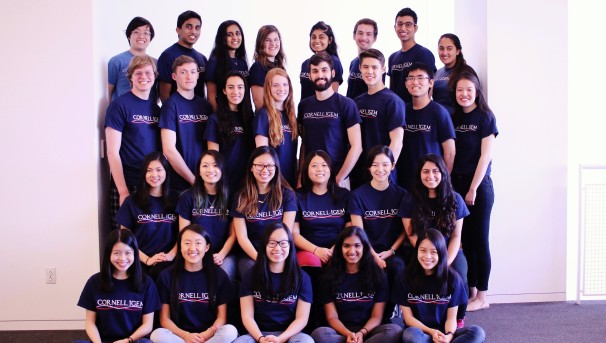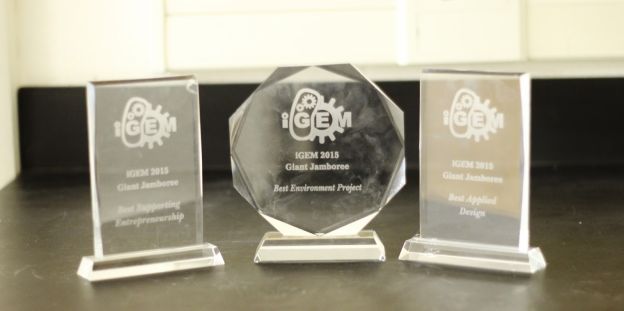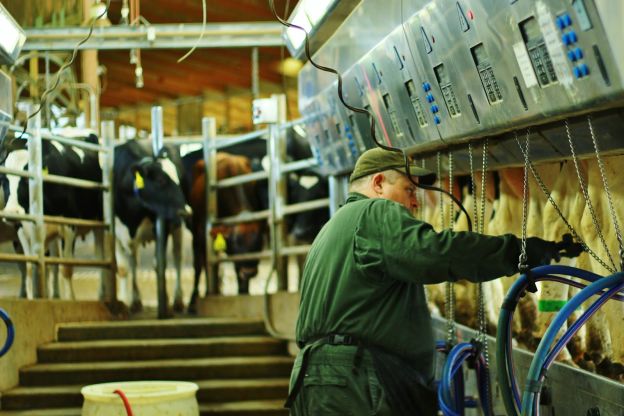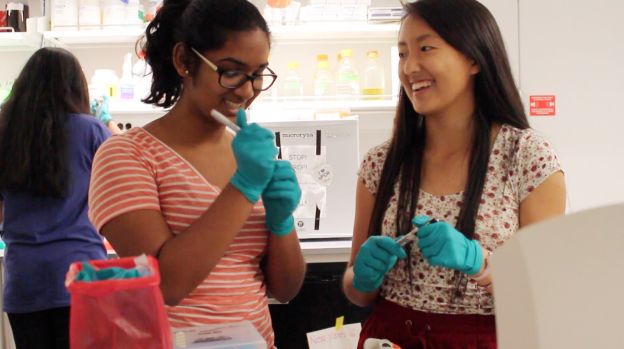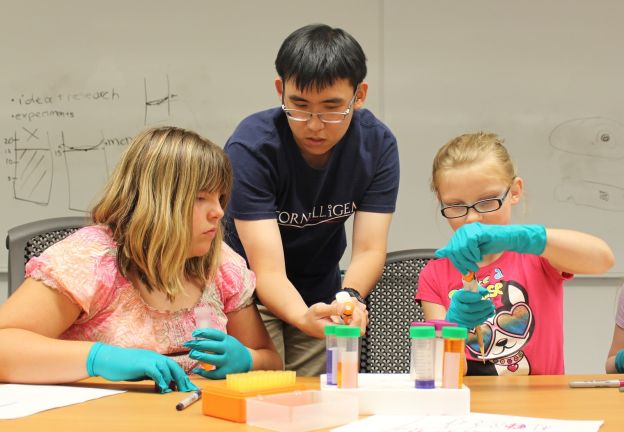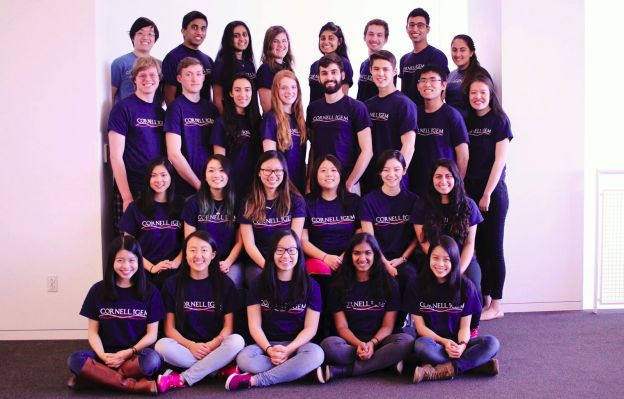Cornell iGEM: Engineering the Future
Cornell University's Genetically Engineered Machines Team
Cornell iGEM is an international award-winning engineering project team composed of 32 students drawn from various disciplines and levels of expertise across the university. The team’s mission is to design and develop a novel genetically modified platform, using the principles of synthetic biology, to compete at the world’s premier synthetic biology competition - international Genetically Engineered Machines (iGEM). Past projects include developing a biological filtration device using bacteria engineered to remove heavy metals from contaminated waters and a “BioFactory” for the cell-free synthesis of complex biomolecules. Last year, with the help of crowdfunding, we developed comprehensive treatment for bacterial coldwater disease in aquaculture by engineering a novel drug delivery system through fish tags. With your help, we were able to take home 4 awards last year: Best Supporting Entrepreneurship, Best Undergrad Environmental Project, Best Applied Design, and a Gold Medal. We believe that synthetic biology and the ability to engineer life itself can offer breakthrough answers to the many needs of the industry, environment, and economy.
This Year’s Project
For this year’s competition cycle, Cornell iGEM is using synthetic biology to tackle the problem of bovine mastitis. This disease causes 300 billion dollars in loss annually and is heavily detrimental to the dairy industry. It causes inflammation of the udder tissue which affects the quality of milk and the health of the cow. Heavy antibiotic use further detriments dairy yield. Using synthetic biology we seek to develop a comprehensive solution. We are developing a bacteriocin probiotic treatment for Streptococcus uberis, the primary agent of mastitis, and believe this treatment method will be highly effective and efficient.. We will implement the treatment through a device which will be biocompatible, cost-effective, and safe for human consumption.
This project aims to help the dairy industry by solving one of its biggest problems. If successful, it can lead to healthier cows, higher dairy yields, and a better replacement to the current antibiotic treatment. Improving the efficiency of the dairy industry will also have a significant environmental impact. We hope upon the completion of this project to have developed an alternative and safer way to treat mastitis and thus improve milk quality across the dairy industry.
Broadening Member Experience
Cornell iGEM provides undergraduates with an interest in biological research and engineering an opportunity to brainstorm, design and build their own project from start to end. The team is composed of multiple subteams including wet lab, product development, policy and practices, CS/ECE design, and business. Students are free to join multiple subteams, which allows team members to not only view each year’s project from multiple perspectives, but also to apply their skills to a diverse array of research goals. Cornell iGEM engages its members in a learning process that teaches students how to apply their academic instruction to real-world applications, uniquely preparing them for team-based projects in the biological field.
Improving our Local Community
Our team prides itself in fostering a meaningful impact on our local and global communities by engaging with Cornell University, Tompkins County, and beyond. To do so, Cornell iGEM has visited the Ithaca Sciencenter, 4-H STEM Camps, and Sustainability Center to help promote safety with regard to the controversial field of synthetic biology. In addition, we have developed a social media platform called "Humans and SynBio" in collaboration with other iGEM teams from across the world to spread awareness of synthetic biology. By sponsoring Cornell iGEM, not only will you contribute to the success of the team, but also helping to fund the scientific engagement of our local community.
We Need Your Help!
As an undergraduate project team, Cornell iGEM relies on outside donations and sponsorships to complete our projects and compete at annual competitions. Your generous contributions would provide us with necessary lab equipment and supplies to develop a treatment for mastitis. Our wet lab research requires materials such as primers, enzymes, and kits; just these three materials together can cost over three thousand dollars throughout the course of a single project. Cornell iGEM invites you to join us in our efforts to achieve food security throughout the world and advance the field of synthetic biology for years to come.
___________________________________________________________________________
Visit our brand new website to learn more: http://igem.engineering.cornell.edu/
Connect with us!
Facebook: facebook.com/cornelligem
Instagram: @cugem
Twitter: @cugem
$10
Atom
A donation of $10 would allow us to purchase basic lab supplies including pipette tips, test tubes, and petri dishes that we use on the daily. Each and every contribution helps and is greatly appreciated!
$25
Amino Acid
A donation of $25 allows us to purchase a pack of 25 centrifuge tubes. We use these tubes every day in our wetlab, and they are absolutely essential to our work!
$50
Protein
A donation of $50 allows us to purchase the enzymes and other such lab reagents needed for synthetic biology research. All our reactions require enzymes, so they are very important!
$100
RNA
Each donation of $100 allows us to synthesize an additional type of bacteriocins used in our research. With every additional bacteriocin we are able to afford, our results will be able to more concretely determine the most effective treatment against mastitis, which would benefit the entire dairy community.
$250
DNA
With a donation of $250, we would be able to purchase DNA sequencing tests, synthesize genes, and obtain vector plasmids necessary for the molecular cloning techniques used in synthetic biology.
$500
Nucleus
With a donation of $500, we would be able to fund all of our outreach costs for the entire year. We are involved in several programs to expose youth in and around Ithaca to science and engineering. We believe that it is very important to invest in future scientists!
$1,000
Cell
A donation of $1000 would cover all of our projected non-reusable laboratory equipment for the duration of the entire project as well as into the future. This is an absolutely essential cost of our work, and the ability to cover these costs allow us to dedicate even more funds to wetlab, drylab, and outreach work. By donating $1000, you are contributing to all aspects of the team and allowing us to achieve and exceed our project goals.

